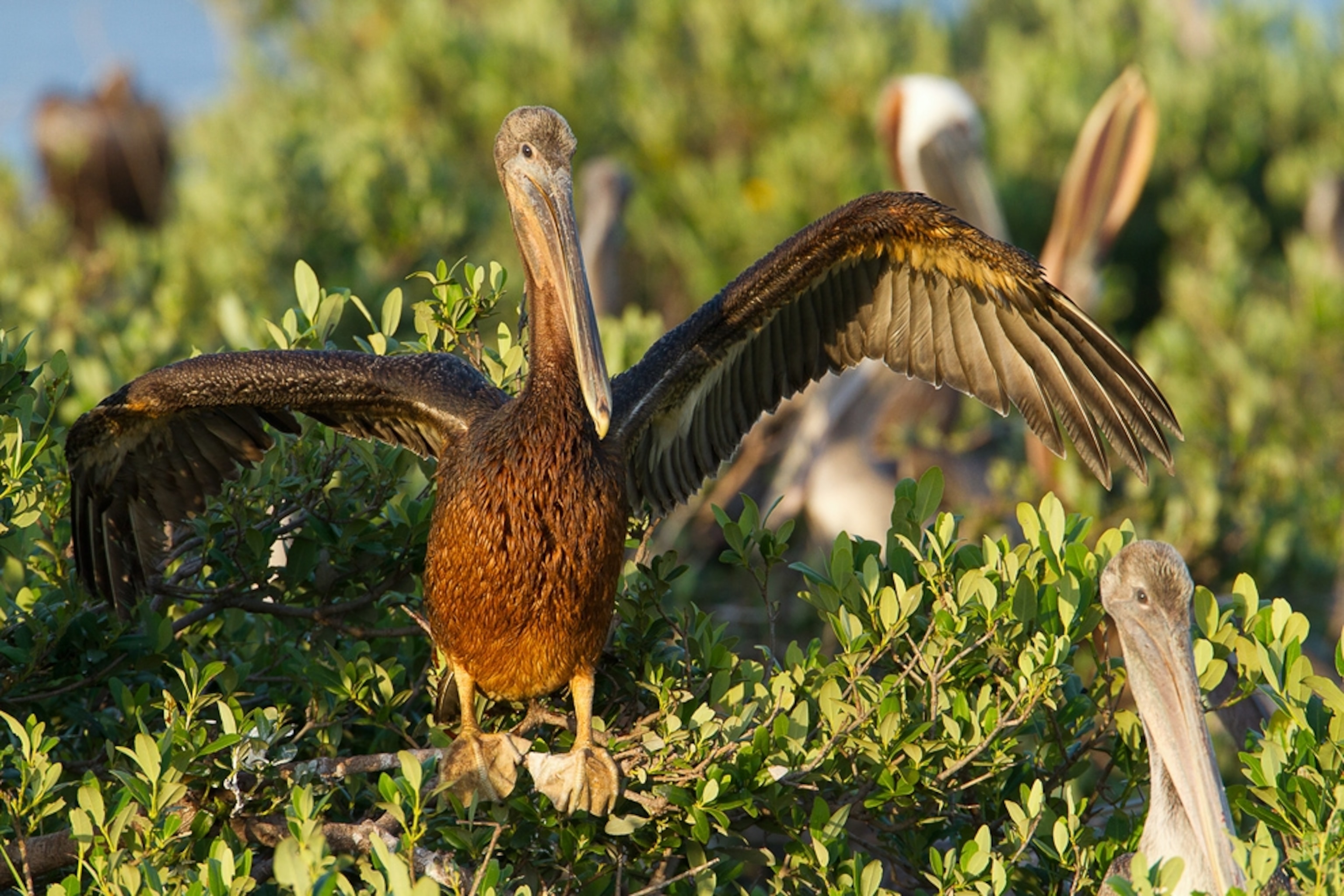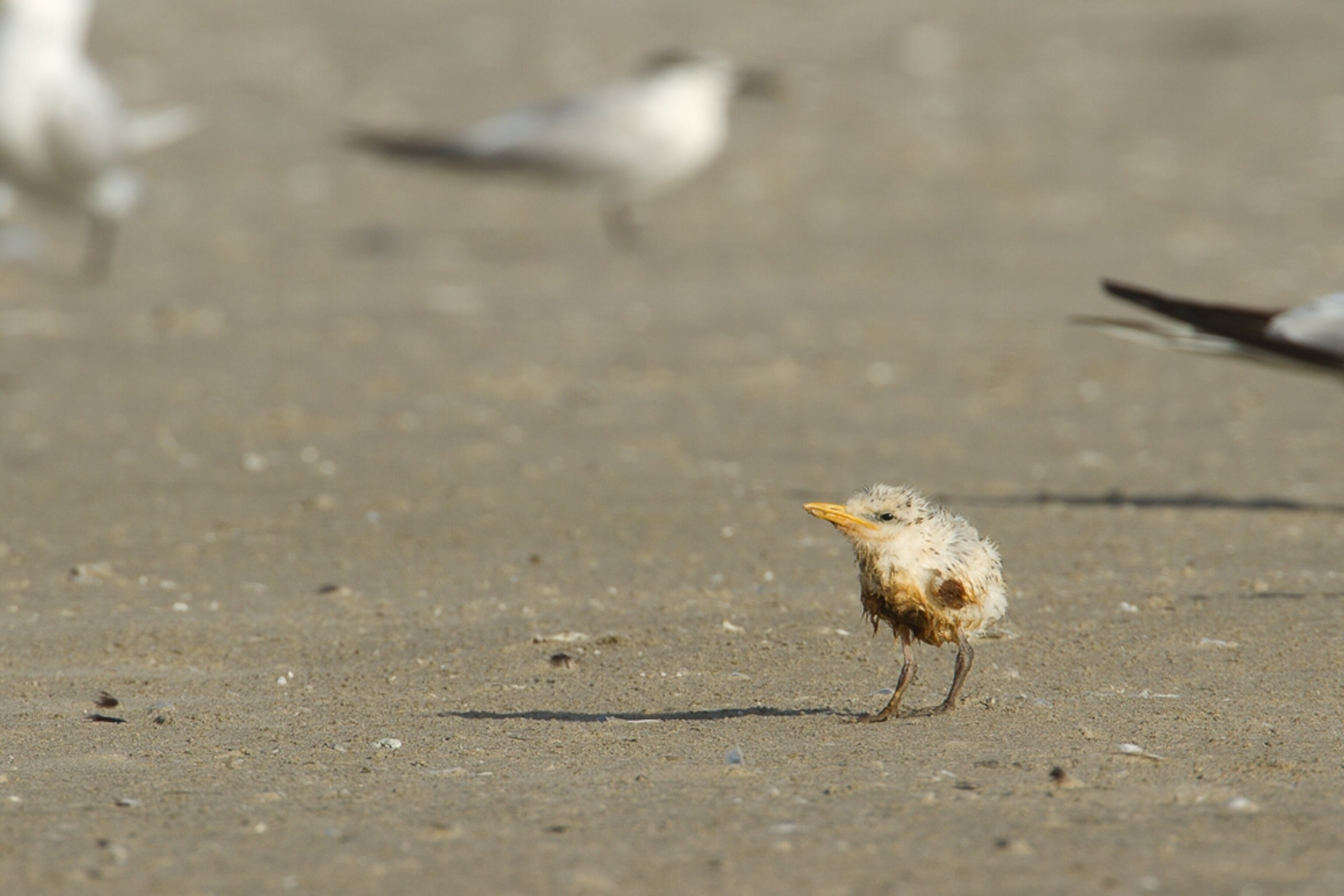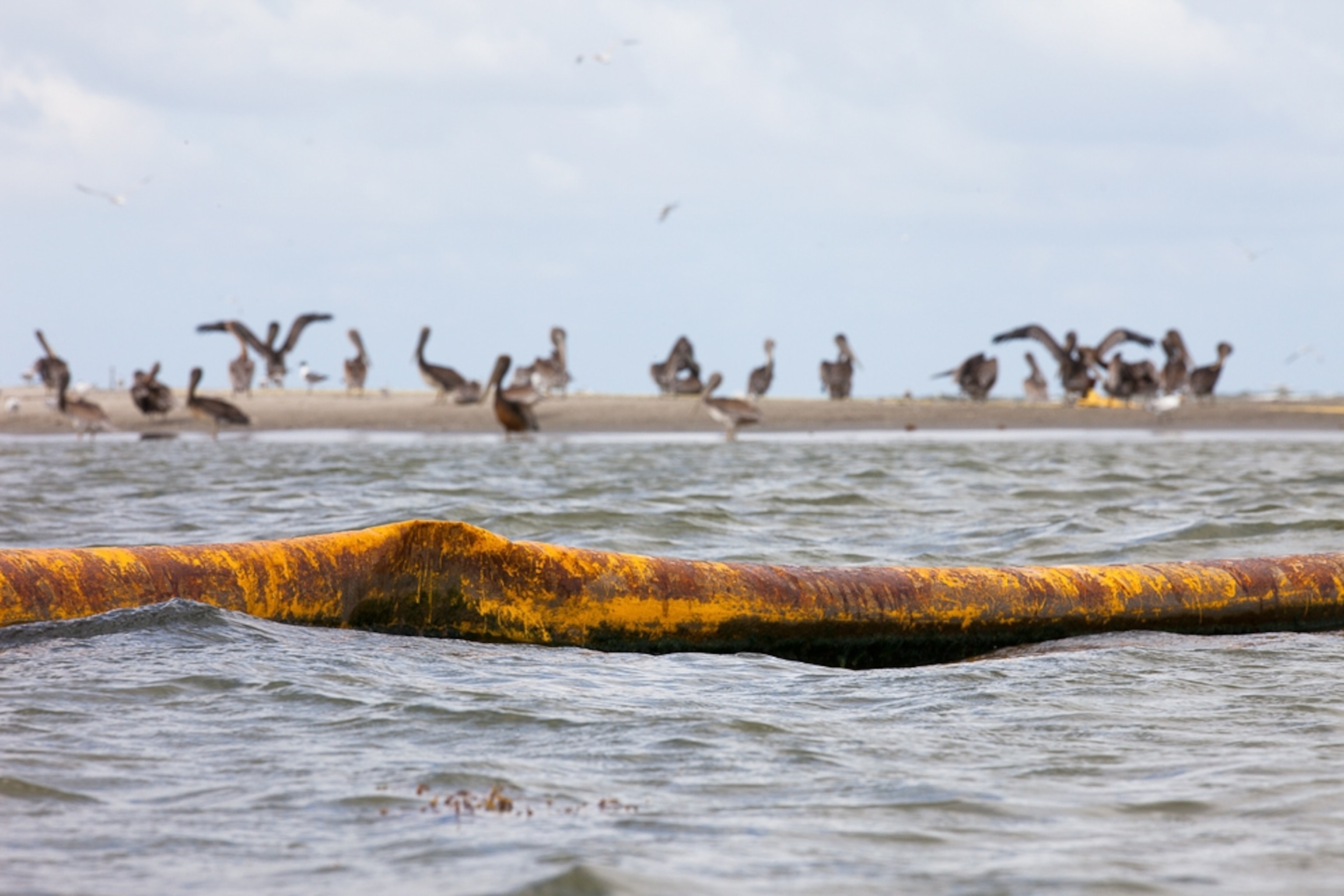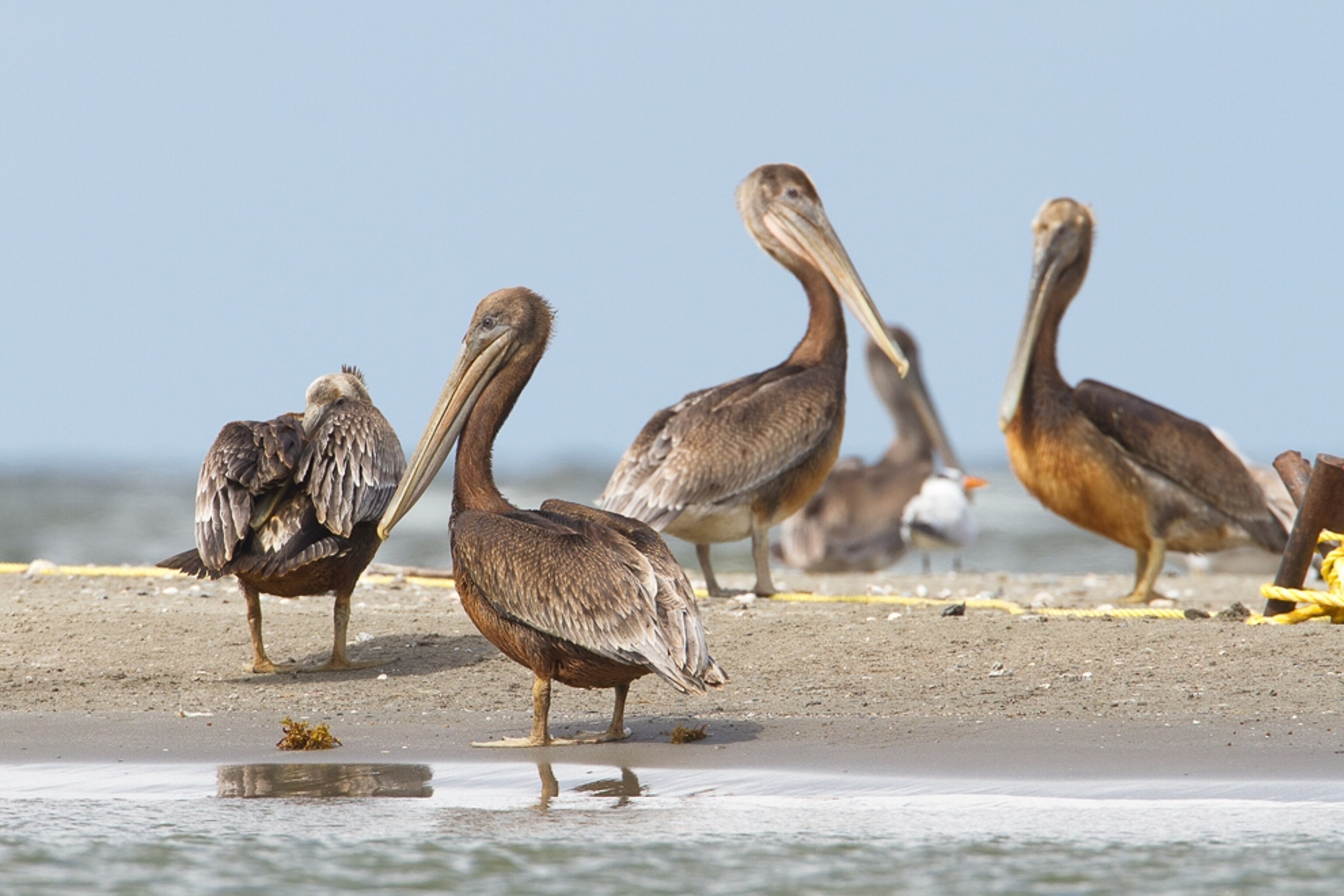Photograph courtesy Gerrit Vyn, Cornell Lab of Ornithology
Pictures: Oil "Devastated" Major Gulf Nesting Site
Only a month after teams reported the area free from oil, Raccoon Island, home to the largest waterbird nesting colonies in Louisiana, has been "devastated" by the Gulf spill.
Published July 21, 2010




